Nov 12, 2018, From Swami to crass consumer
Slow Boat Down the Ganges Update 47
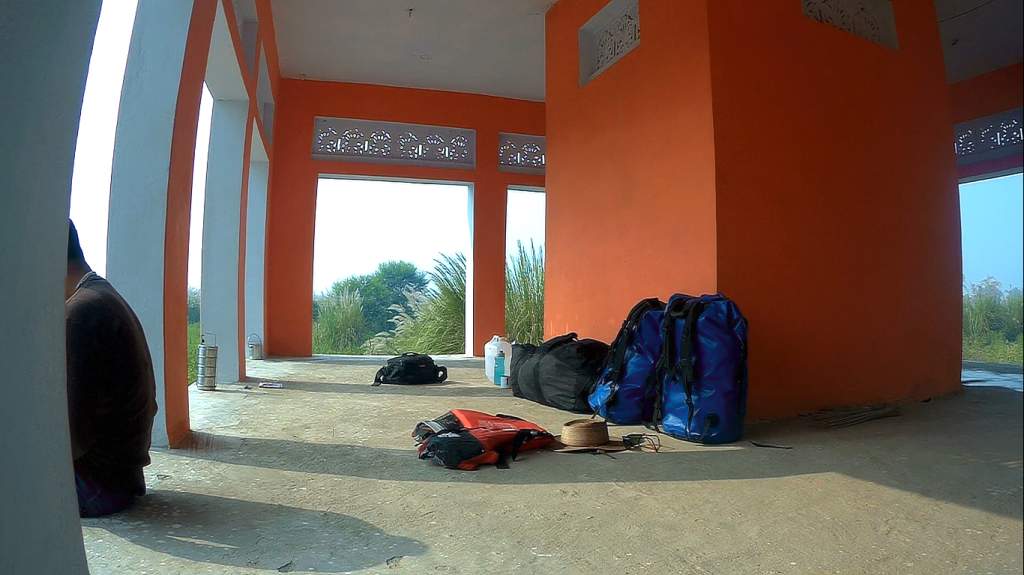
I had slept in a temple in the night, with Lord Shiva as company. I had already been elevated to God-like status last evening. And I had a good night’s sleep.
When I woke up around dawn, I kind of felt, rather than saw, people around me. Wondering what was afoot, I squinted my eyes open to find about a dozen people sitting all around me. Young and old. A couple of people walked in from the village to join this group, and before they sat down, I saw them touching my feet, over the sleeping bag.
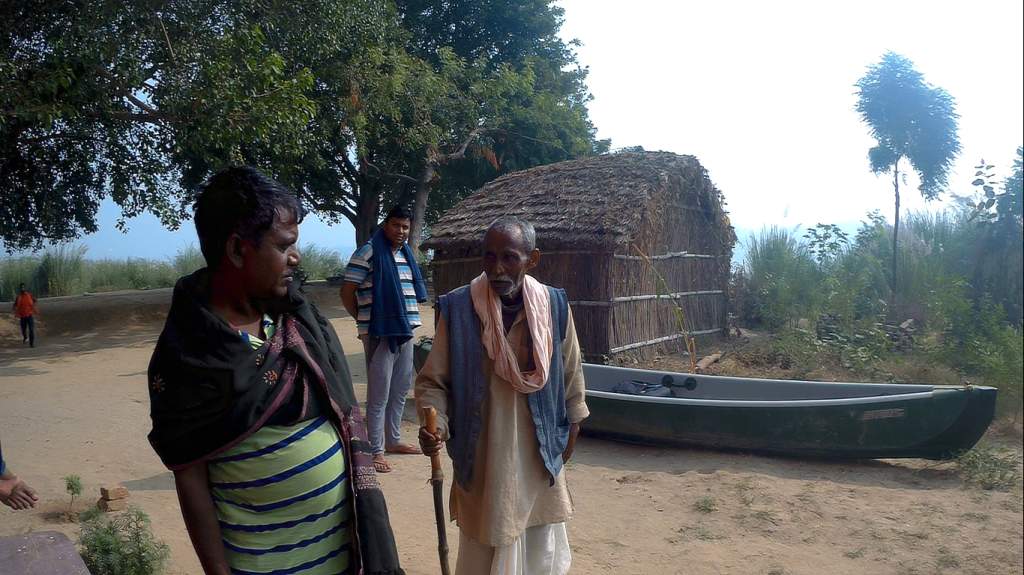
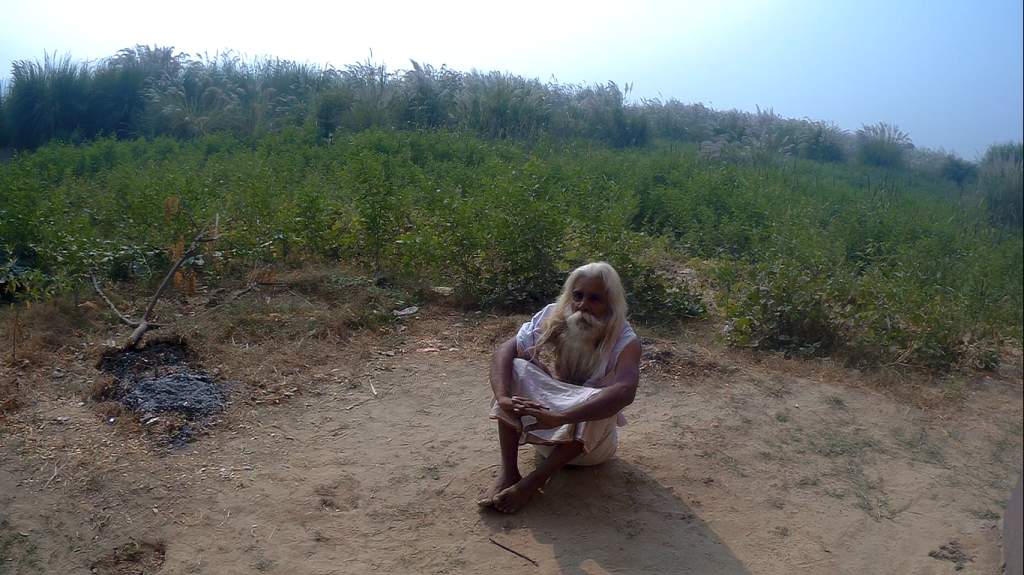

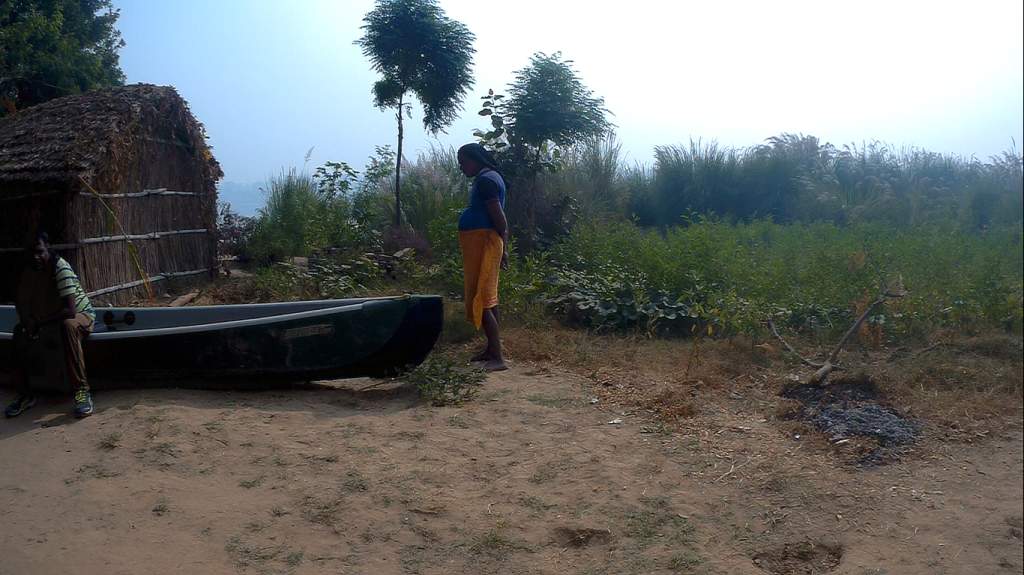
This was getting to be very embarrassing and I did not quite know what to do, or how to stop them from doing so. “Major” sahab came and kept a cup of tea next to me and gently cajoled me out of my sleep. He did not know I was up and figuring out what to do to wake me up. In any case, a hot cup of tea is not to be wasted and I ‘woke up’.
Immediately, a volley of “Jai Sri Ram” chants followed, coupled with folded hands and everyone was happy that Swamiji was finally up. I reciprocated with folded palms, as venerable as I could be, and lit my customary cigarette. The villagers looked on. In fact they looked on at everything that I was doing, from folding my sleeping bag, to packing my luggage for the onward journey. I felt like a monkey in a zoo, and I had absolutely no privacy, but a lot of devout supplication.
Morning called and I was promptly pointed to the nearby fields. I was handed a bottle of water to wash myself after, and I had a feeling that if they had their way, they would have accompanied me and done the washing themselves! As I was walked in through the bushes, I found fresh mounds deposited this morning, which hopefully would compost quickly before the feasting flies could sit on food meant for human consumption. Despite toilets constructed in almost every house, in every village I visited, people still insist on defecating out in the open. I guess centuries-old habits are difficult to change.
A while later a jug of milk appeared, straight out of the udder. I proferred my little cup, but was told to finish the entire litre. Which I did. Fresh milk is not something that we city folk are used to, but despite the many litres I have consumed during this journey, the stomach seems to be taking it reasonably well.

Soon enough it was time to leave. Reluctantly, after I turned down umpteen requests at staying back, I was allowed to depart this little piece of Heaven. Multiple people helped carry the canoe and the luggage down to the river, and I was off.
I can see why and how it is quite easy to get a bloated head and an ego as big as all outdoors, given such faith and adulation. A little bit of knowledge, someone who does not look like the simple villagers, a few words of wisdom (however un-wisdom-like they may actually be), and there are gullible people willing to literally eat out of your hands. I was often reminded of the film Guide. Here I was being revered, while at the end of my expedition I will be back at being a nobody in the cut throat world of the city. I can easily decide to stay on in a village like Kanigada, with everyone considering me God, food, stay and the minor vices taken care of. There were villagers who left their bundles of bidis for me, for instance.

It was time to move on from this fantasy land that I found myself in, and move on. I was told to stay with a naga sadhu who has an ashram at a village called Itahara. I was told it was next to Sitamarhi which is where I wanted to go. That sounded like a plan, and I started paddling, with Itahara as the destination. Sitamarhi was about three clicks over land, but thanks to the meandering Ganges, it is about thirty kilometres paddling. This is the route I had chosen at Tela Ghat yesterday, and that is what I had to paddle today.
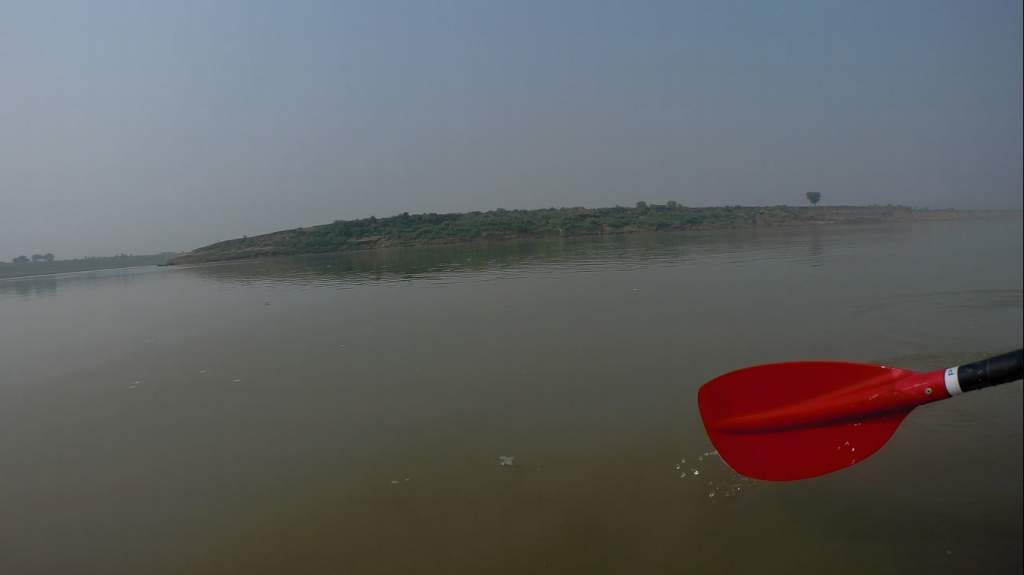
Frankly, the GPS can be misleading. At a certain magnification, there seems to be a single bend in the river. But once at the bend, and zooming in, yet another bend appears. There were so many bends that I stopped counting after a while. And there was no current, as usual, and a slight head wind. Added to that was a pontoon bridge being constructed. Thanks to the foggy conditions it is difficult to fathom which way to go. I had no intention of trying to squeeze between two ‘drums’ of a pontoon bridge, lest I get stuck. I would rather portage around it. Fortunately, I saw a gap between the under-construction bridge and land, leaving enough space for me to pass through peacefully.
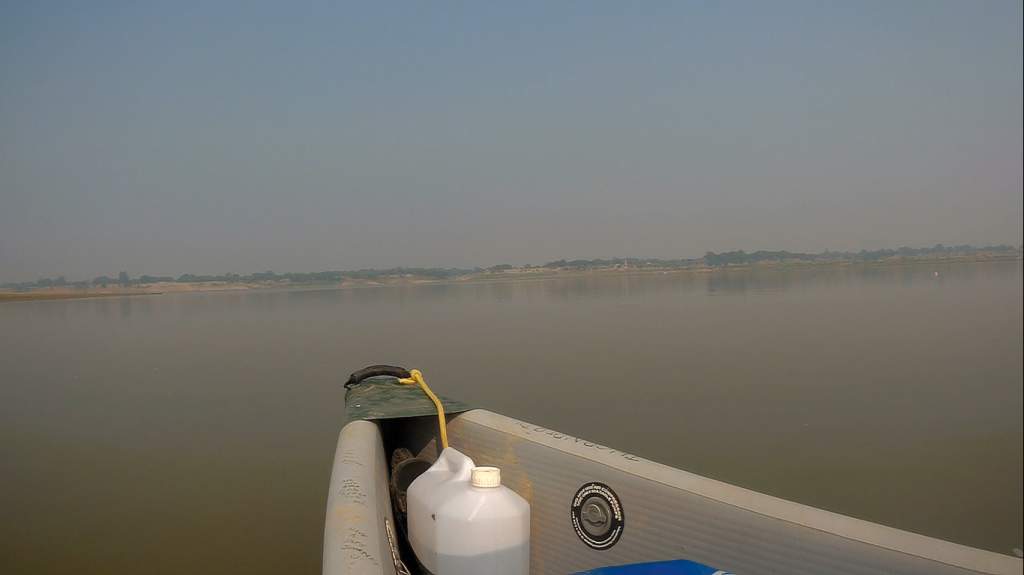

Often, and this is something that made me mad, when I asked someone how far it was to the next village, I was told, “Very far”. I know that it is “very far”, all I wanted to know was how many kilometres, or how long a paddle. Despite my repeated questioning, I was told, “very far.” Frustrated, I paddled on. En route to Sitamarhi, when I asked someone how far it was, I was almost always told “four to five kilometres”. This distance to Sitamarhi never seemed to changed, no matter how many kilometres I paddled. I paddled on.
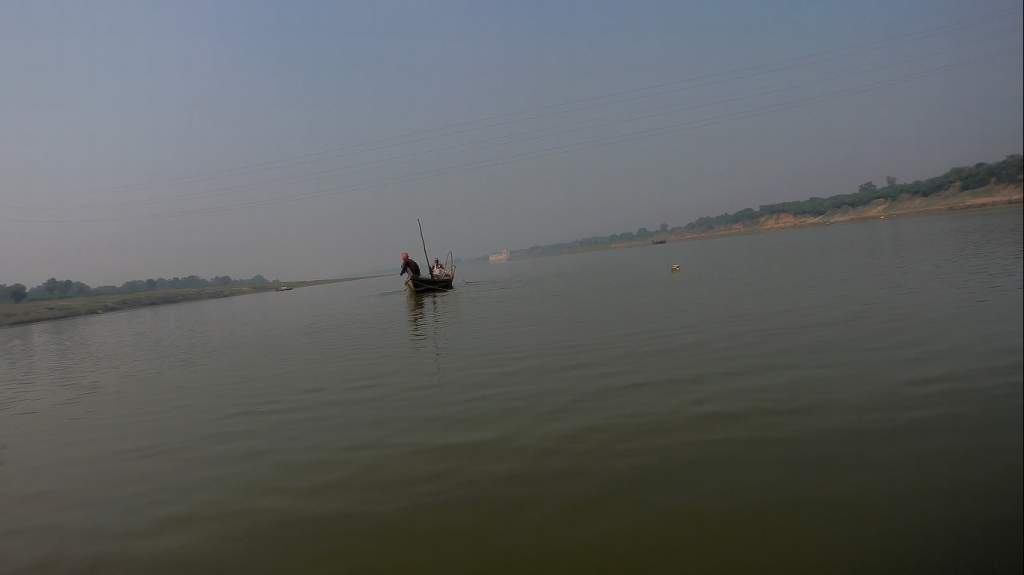
Soon I met a fishing boat and enquired about the naga sadhu of Itahara. Right around the bend, I was told. Soon I saw what was allegedly the ashram. On asking another fisherman about the distance to Sitamarhi, I was told, “Four kilometres.” This was not working for me. I was told that the sadhu stayed just outside Sitamarhi. Four kilometres was four kilometres more than I wanted. I would have stayed with the sadhu had Sitamarhi been a few minutes walk away. It wasn’t.
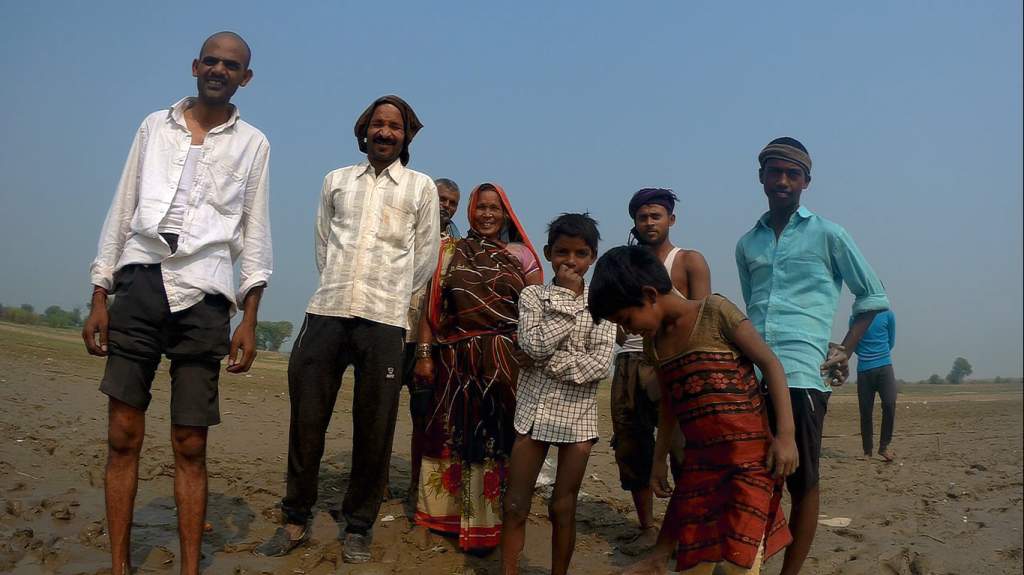
I gave up the recommendation/invitation to stay with the naga sadhu and proceeded towards Sitamarhi. It remained ‘around the next bend’ and ‘four kilometres away’ for the next hour or so. One kind soul would even pointed out the bend where Sitamarhi was. On reaching that bend, I did come across a village, but Sitamarhi was still four kilometres away!
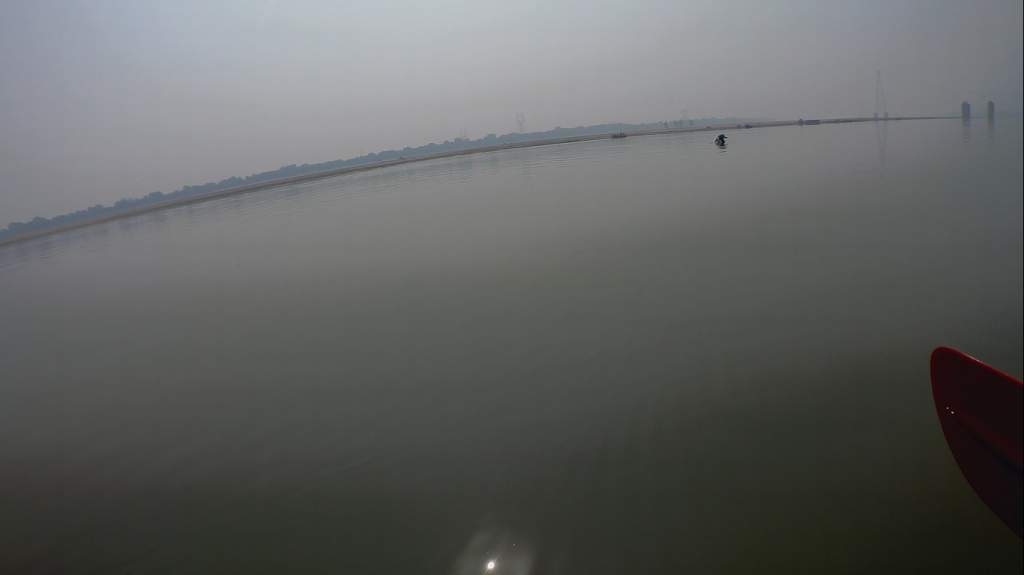

The dolphins kept me company, and soon enough I reached Sitamarhi. The promised stone steps that went for a Ghat turned out to be a fairly extensive sand mining operation in progress. I beached my boat and was soon surrounded by curious onlookers and expectant helpers. One person came forward and offered to give me a ride on his vehicle to what he promised was a Guest House. I accepted and soon a SUV arrived. I loaded everything except the canoe in it and proceeded towards said Guest House.
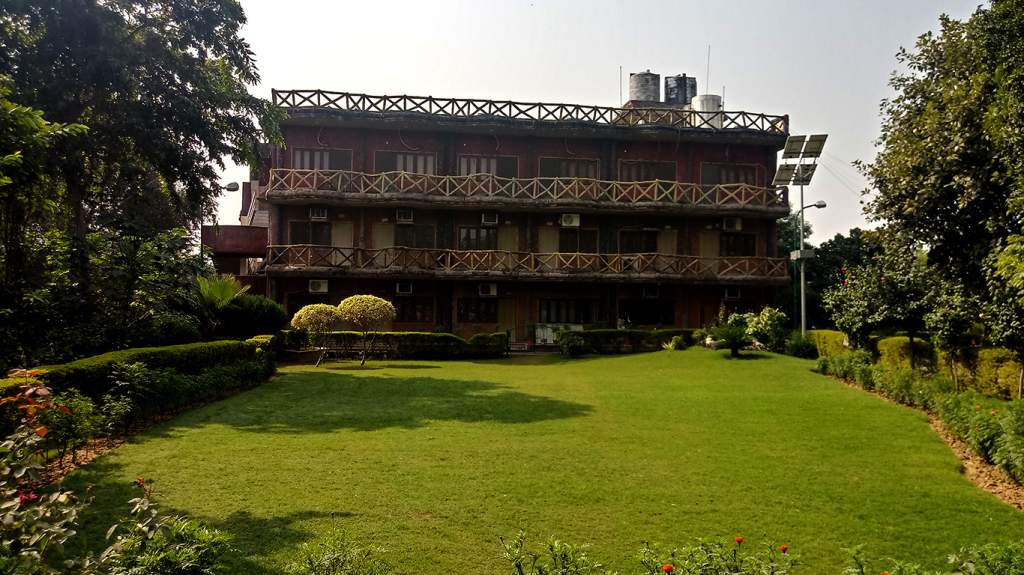
The room was inspected, identification papers were sought and provided, suspicious looks happened and unspoken questions raised (I understood this from the furrowed brows) about the payment when I said I was going back to get my boat.
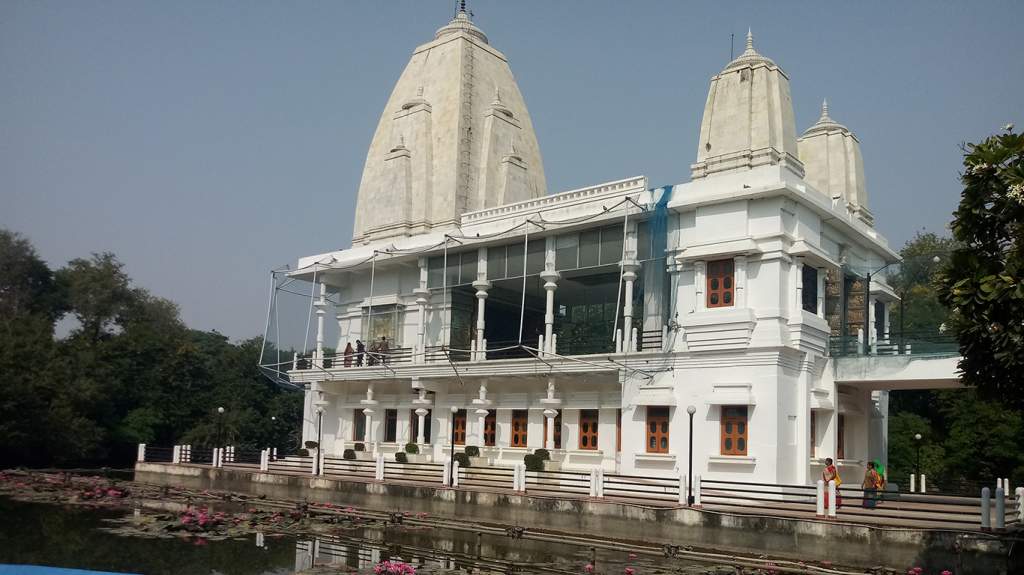


Whenever ‘civilisation’ happens, humanity and basic human decency goes out of the window. This journey has been a study in the sudden changes in human behaviour depending on where I find myself. People who do not have anything to spare, open the gates to their homes and hearts. When I find myself in a more ‘civilised’ town or village, I find myself frequently feeling for my phone in the pocket, lest someone decides to part me with it’s possession.
Do I want to be a Sadhu Maharaj? No. But, do I want to be forever vigilant of my belongings due to the inherent mistrust in a slightly larger city? Definitely not. I will be much happier among the simpler folks of a small village, where trust is the only thing one has got to lose.
I have spent more money in the last couple of hours at Sitamarhi, than I have spent so far on this expedition. If only we decided to look at and treat others as just human beings, the world would be a much happier place.

Sitamarhi is a temple town dedicated to the Lord Hanuman, the monkey God. Here he is revered as Sankatmochan, the one who removes all troubles and hurdles. Consequently, the temple sees a lot of devotees, from near and far. This was also the first place on the banks of the Ganges that I found a temple not dedicated to the river taking precedence over the holy river itself. There are shops selling everything from flowers, to prasad, to trinkets, to idols, to photos of a multitude of Gods and Goddesses. All the eateries in the area sold the very same thing ... tea, samosas, kachoris, aloo tikki. I did not find a place that was selling anything that could constitute dinner. No worries, copious amounts of tea later, it was time to go to sleep. I was tired today. Even though the mileage was not too much, the paddling was strenuous.
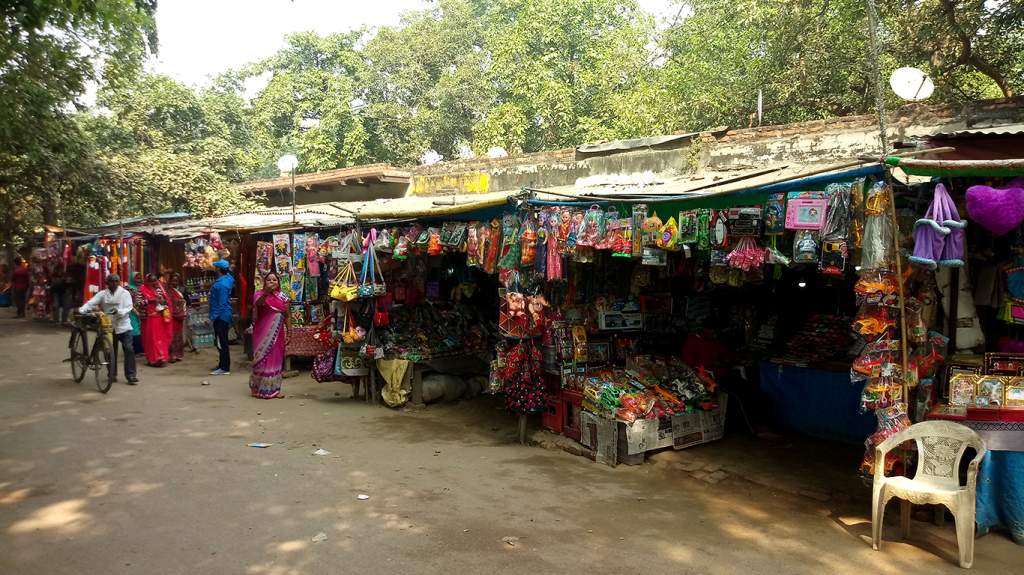







 (4 votes, average: 4.50 out of 5)
(4 votes, average: 4.50 out of 5)![]() Loading...
Loading...


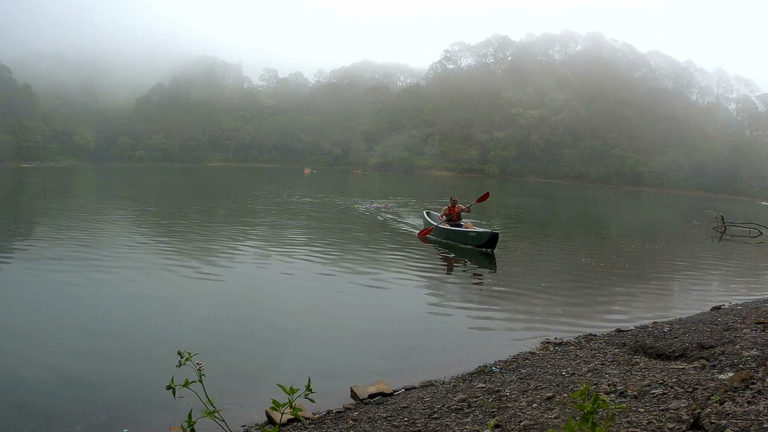
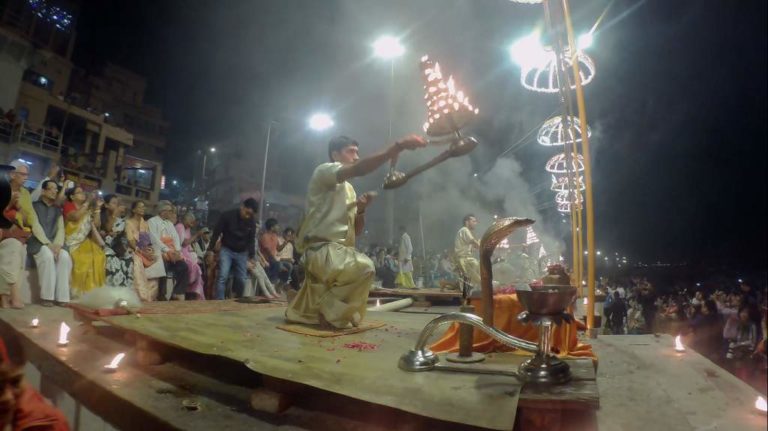




So may be within half a Km of Ganges banks the large hearted ness starts narrowing down to caste, status, money etc.
Jis desh mein Ganga behti hai?
It reminds me of large hearted ness of the villagers in Punjab border areas when we used to camp. Milk, Gur and sabji paratha, roti used to flow straight from the heart.
I am amazed and truly humbled by the generosity of people. The less people have, the larger their hearts seem to grow.
Can see a book in the. making. And a lecture series of sorts. Keep at it and God Speed Chandan.
I have been writing the manuscript for the book. And thinking about sharing my experiences wherever and whenever I can.
Interesting study of contrasts.
It was. The more there are of any one species, the more we take it for granted. Whether people or animals or vehicles.
Welcome to the land of Vikramaditya, , Mughals, Shershah Suri , Warren Hastings , forts, Munshi Premchand and pottery . It is yet another civilisation .
Thrilled to hear stories of true India from your pen . The Temple looked to be from The Guide . . ” Leher leher Ganga Laheri “.. ‘Chhat ” happens to be on 13 th .
We await stories from Banaras as you inch forward .
Yes, eastern India has been a land of intellectuals for centuries and I look forward to paddling through it. However, I am a little concerned about what has, in recent years, become the badlands of India. I believe things have improved a lot. But, people do warn me to be careful about who I meet, talk to or stay with.
I was reminded of the film Guide so many times during my brief stay at Kanigada.